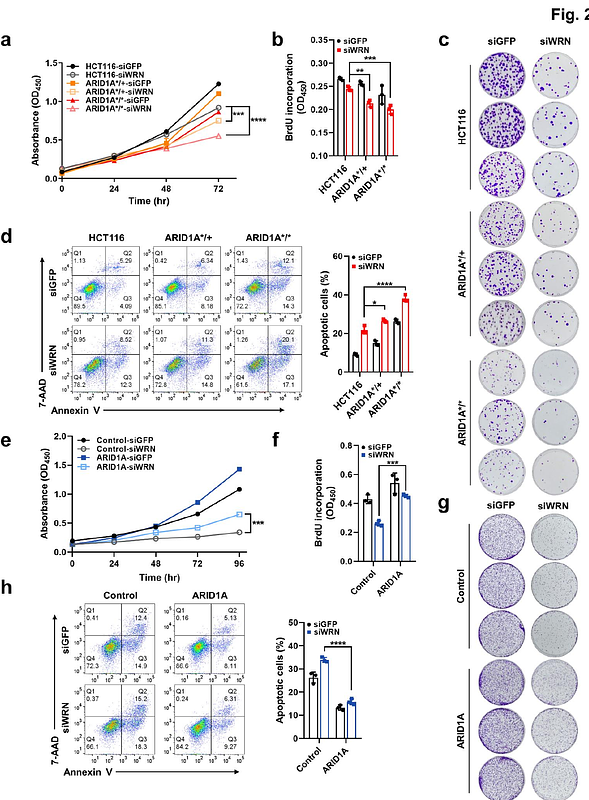Differential DNA damage response to WRN inhibition identifies a targetable vulnerability in ARID1A-mutated cancers

Differential DNA damage response to WRN inhibition identifies a targetable vulnerability in ARID1A-mutated cancers
Kim, J.; Oh, J.; Jang, D.; Shin, S.; Lee, S.-J.; Lee, S. E.; Yang, Y.; Kim, D.; Choi, A.-J.; Jung, H. R.; Oh, Y.; Cho, S.-Y.
AbstractARID1A, a key subunit of the SWI/SNF chromatin remodeling complex, is frequently mutated in cancers. However, effective clinical treatments for patients with this mutation are limited, highlighting a demand for new therapeutic strategies. Here, we establish Werner syndrome ATP-dependent helicase (WRN) as a critical vulnerability target in ARID1A-mutated cancers. Upon genetic and pharmacological inhibition of WRN, ARID1A-mutated cells had defective Chk1-mediated DNA damage signaling, resulting in compensatory Chk2 activation, leading to G1-phase arrest and apoptosis, whereas ARID1A-proficient cells underwent Chk1-dependent G2/M arrest. Additional p21 inhibition, combined with WRN suppression, drove G1-arrested cells to re-enter the cell cycle, triggering mitotic catastrophe. The anti-tumor efficacy of WRN inhibition was validated using in vivo cell lines and patient-derived xenograft mouse models. Our findings define WRN as a selective therapeutic target in ARID1A-mutated cancers and suggest a combinatorial strategy of WRN and p21 inhibition as a therapeutic approach.